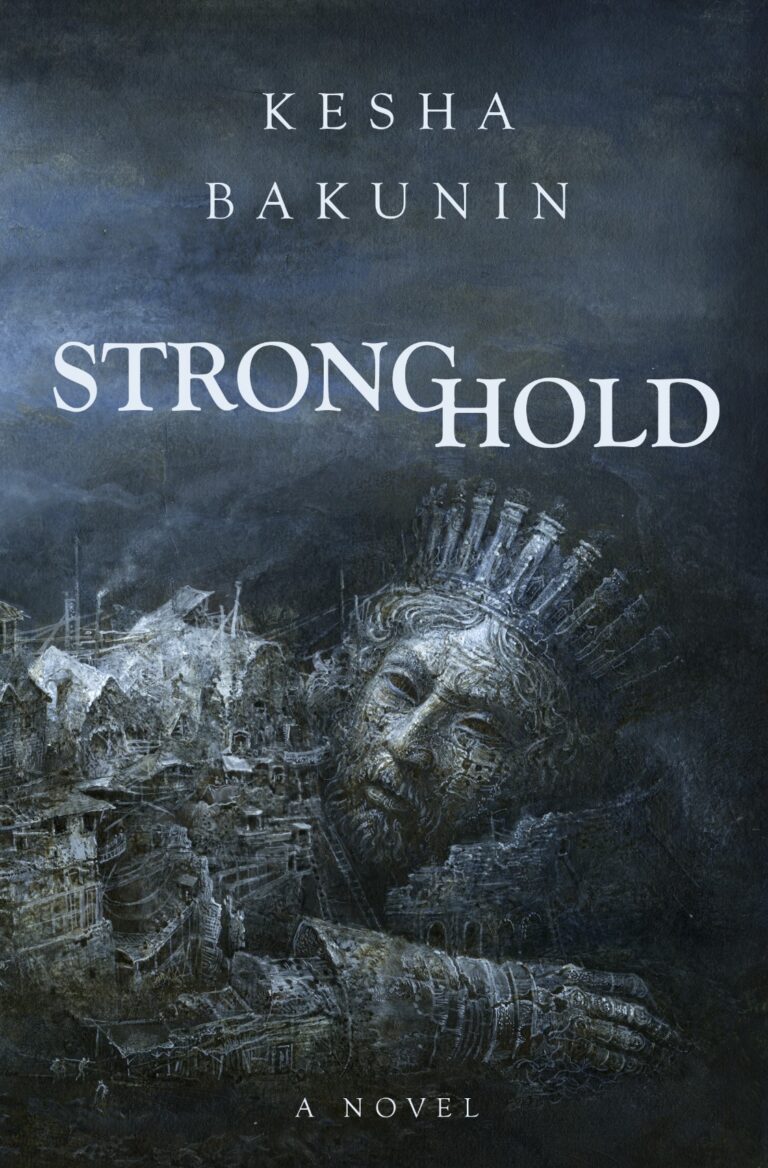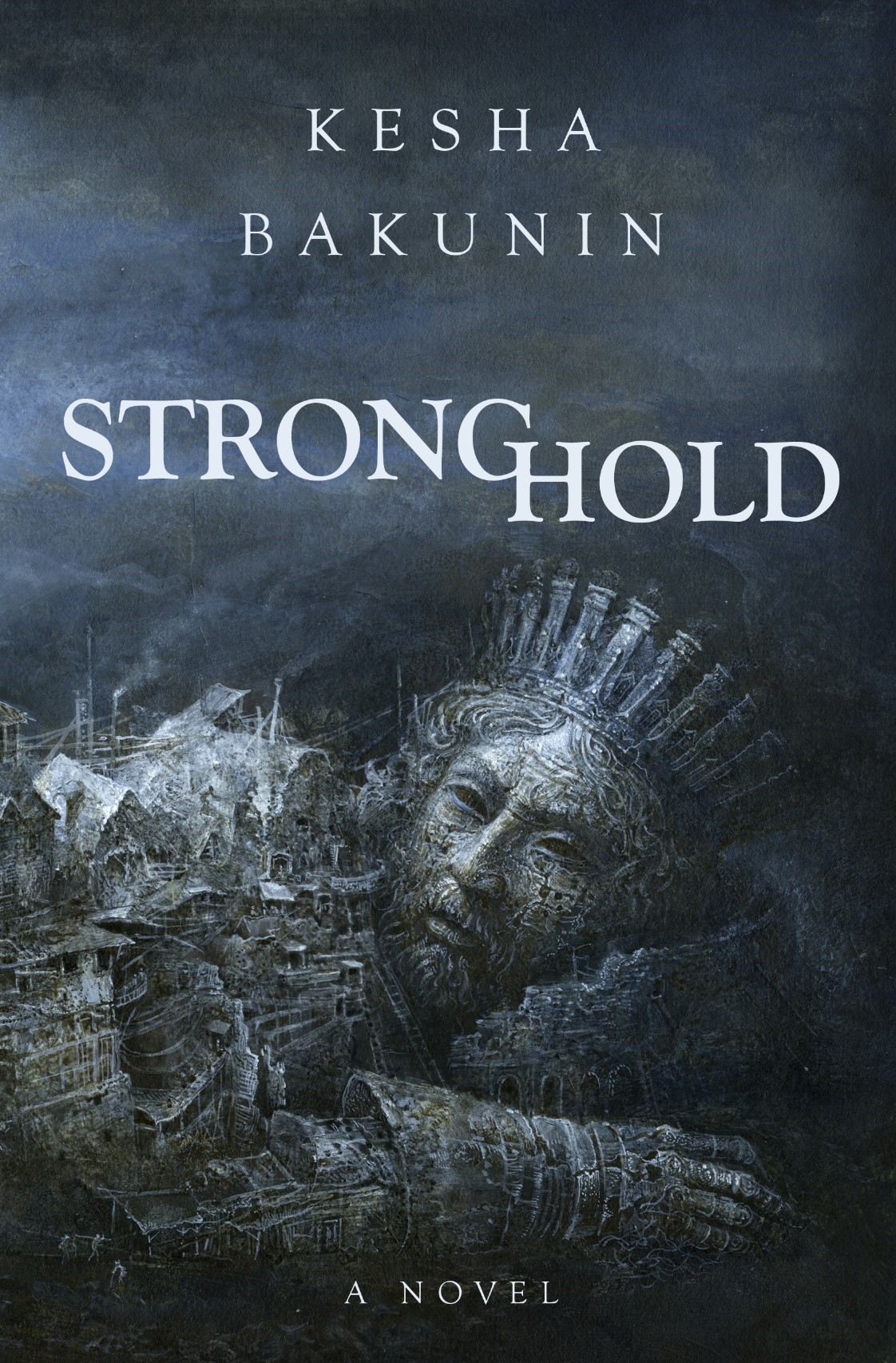Kesha Bakunin’s STRONGHOLD is the story of Iskoria, the preeminent power in the Known World. Two hundred years past, the command of the Iskorian throne is in flux; in the present, Iskoria is in decline, the future uncertain for that royal line. In both cases history is manipulated by the Stronghold, a mysterious structure inhabited by people with language and magic inscrutable to the medieval-level world around it. This reviewer is generally not concerned with the author of a text or the circumstances of its creation. However, STRONGHOLD’s back matter makes two points which require consideration: first, that the author was born in a former Soviet country and emigrated due to perceived cultural and political consequences of religious extremism; second, that it was impossible to publish STRONGHOLD at home, and the book was translated into English for publication abroad. Be aware of some spoilers in the last paragraph.
STRONGHOLD is a well-told story. Although events span two centuries, the characters are clearly-drawn and compelling enough to give the reader an anchor in each plotline: the conjoined twins who serve as the Sovereign of Iskoria, chancellor Untu, and various members of the unscrupulous Koralis merchant clan each carry an emotional kernel that transcends the particulars of political scheming or fantasy geography. The text parades through its plotlines: the route is straightforward, but the people and places are so colorfully decorated, and convey such a rich imagined history, that the spectacle is compelling (even over STRONGHOLD’s considerable length). The text itself is confident, the tone shifting quickly from historical – half encyclopedic, half cheeky and judgmental – to fast and active, sketching a setting just in time for the plot to strike.
The text’s narrative confidence does not extend to a firm grasp of voice. While the overall style is literate and literary – STRONGHOLD does not evince any grammatical failings specific to translation or writing in a second language – dialogue and description are sometimes strangely mismatched. The most visible example is a propensity for latinate vocabulary which is completely out-of-step with the dialogue of characters and the narration itself (much of which is in-universe narration by a character). It’s hard to say whether this is a problem with writing or translation, but constant references to “nescience” and “hebetude” forced this reviewer to a dictionary more than once – both to confirm the denotative definition of a word and to ensure it didn’t carry an additional connotation that had some meaningful bearing on the text. These searches were typically frequent and fruitless: even when “corybantic” turns out to have a root in Greek mystical rites or “typhlotic” is mostly medical in use, it has no bearing on prose that would have easily been better-served by simpler language.
STRONGHOLD is also, explicitly, a book of political philosophy. It purports to tell a story in which political tribalism produces a splinter group of independent thinkers – who somehow then fall into Islamic fundamentalism, ideologically cannibalize each other, and then try to enforce Islamic fundamentalism on the world, in competition with a burgeoning humanistic movement toward representative government. The problem is, although STRONGHOLD is science-fantasy, it explicitly calls out real-world Islam, and the fable begins to fall apart. There’s no question that in the last few decades, there’s been a cultural divide between nations ascribing to some schools of Islamic fundamentalism and self-proclaimed secular Western nations, but STRONGHOLD takes events which are historically contingent (especially post-colonial) and tries to interpret immutable truths from them. Islamic fundamentalism is a set of interpretations of scriptures and cultural practices (which themselves sometimes masquerade as scripturally-proscribed); it works differently in post-Soviet Afghanistan and post-revolutionary Iran, let alone amongst people in a spacefaring society far from modern Earth, but in STRONGHOLD the mere discovery of a single copy of the Quran is enough to plunge a city-state into an anti-democratic, morally-policed, burqa-clad chaos. From a book that is clearly a political statement, this is simply bad history and bad politics. Combined with a dim view of human nature halfway between Hobbes and George R. Martin, the result can actually be comical: a novel about serious themes that ends up misunderstanding systems and coming to overly-grim conclusions about humanity. If this were pure fantasy, the text would be free to make whatever arguments it wants, but it hobbles itself by trying to be about historical modernity. The best recommendation may be to read STRONGHOLD for fun, but forget the political philosophy.
Although the prose can lack focus and the ideological thrust fails under scrutiny, STRONGHOLD will still entertain and intrigue readers hungry for Game of Thrones-style political play in an epic science-fantasy world.
~Dan Accardi for IndieReader


